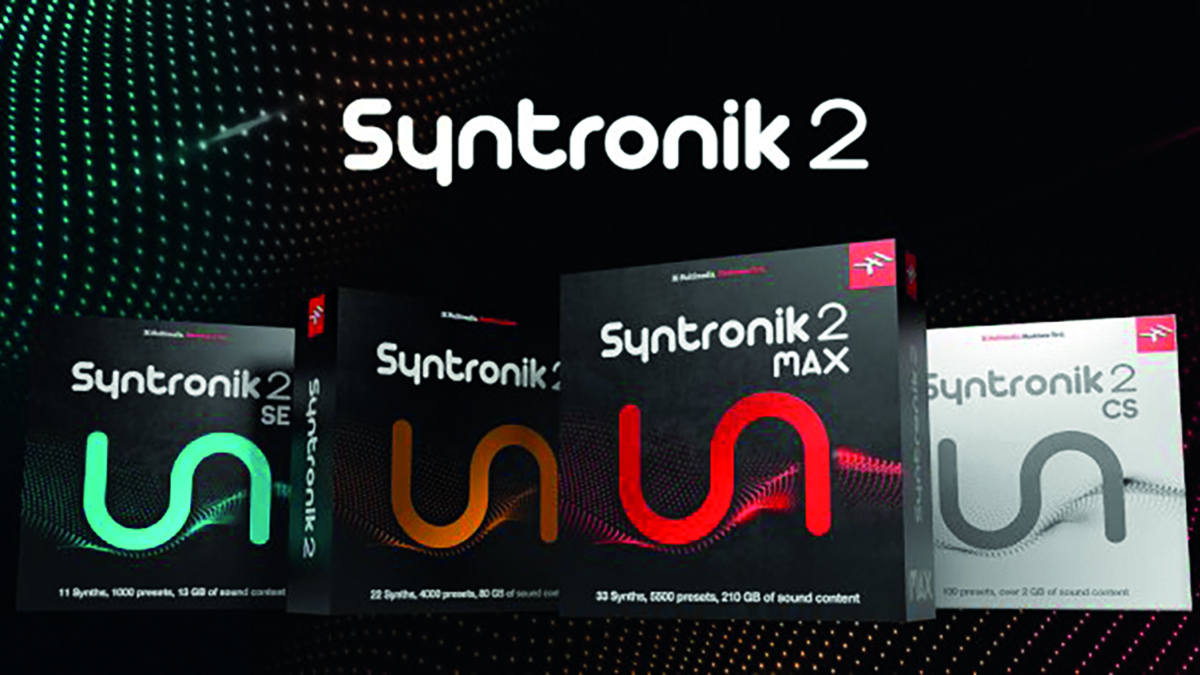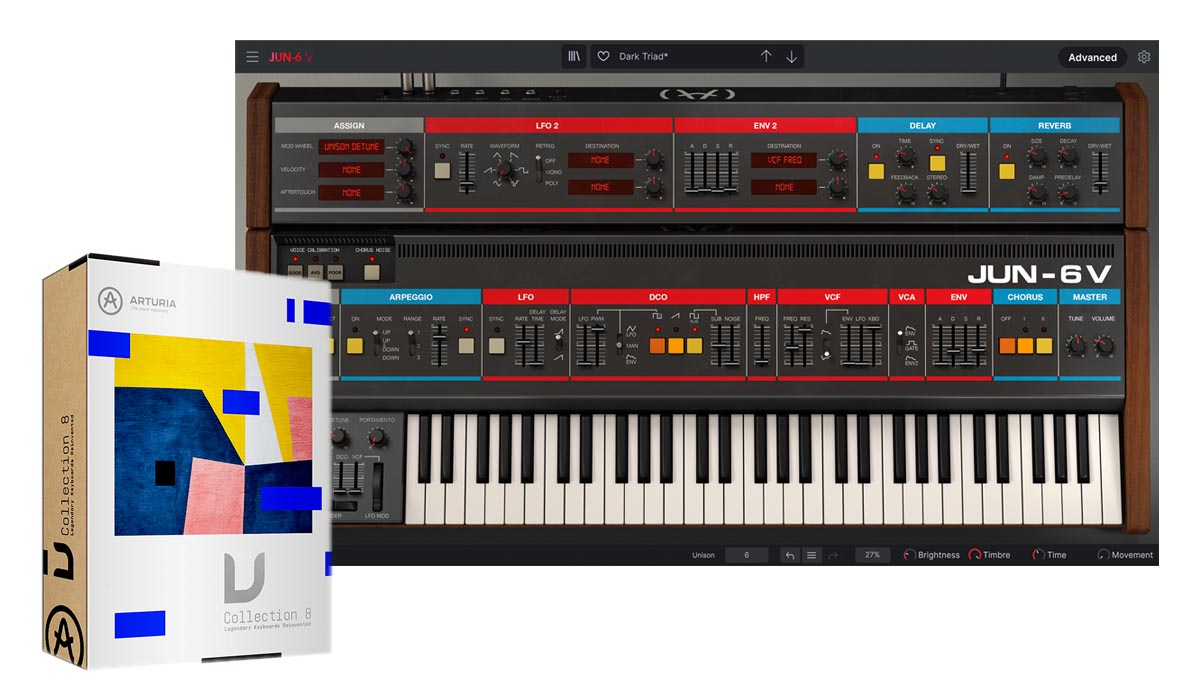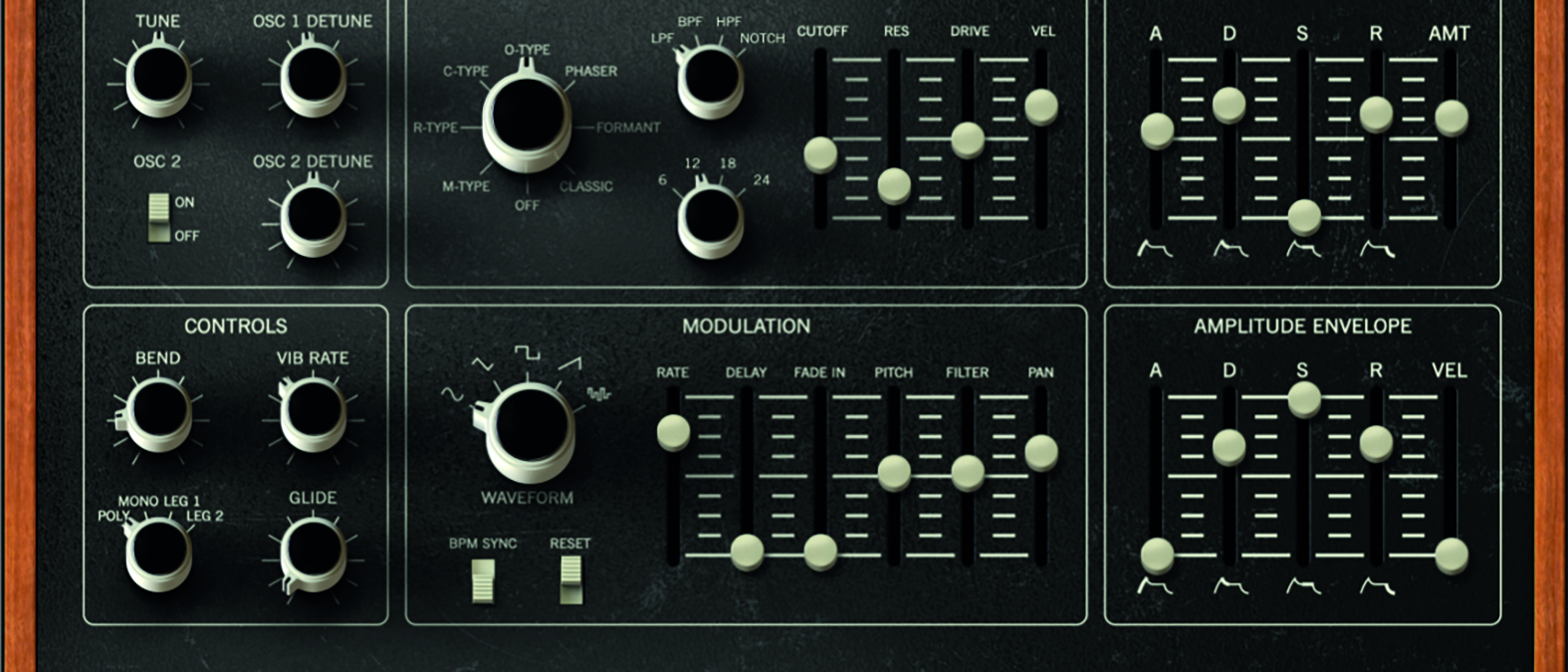MusicRadar Verdict
A worthy compendium of classic synths that offers great samples alongside nicely crafted filtering options and stylish GUI.
Pros
- +
Comprehensive suite of classics.
- +
Full bodied sonic architecture, derived from samples.
- +
Mix-and-match filter employment.
- +
Layering capability is impressive.
Cons
- -
Preset selection takes time.
- -
Not always entirely faithful.
MusicRadar's got your back
IK Multimedia Syntronik 2 MAX: What is it?
Have you ever played that game where you build a shopping list of vintage synth classics? Scour the auction sites for the machines you couldn’t afford when you were a teenager, and you’ll likely find that it’s an even worse financial prospect now! All is not lost though, as we dive headlong into the realm of nostalgia, thanks to IK Multimedia.
Syntronik 2 is a welcome update, building upon the reliable Mk 1 offering from IK. We’re reviewing the full suite, which is described as Syntronik 2 MAX. This offers a full-sized compendium of 33 software instruments, placed at the top of the package tree. If that feels a little overblown for your requirements, the regular-sized version offers 22 synth instruments for €299, while the entry-level SE version includes 11 synth instruments for just €149. It all sounds like a bit of a bargain.
Syntronik 2 operates within the plugin domain; upon loading for the first time, one of the first games to play is ‘spot the synth’. There are some cryptic names in play, all of which relate to some form of classic from yesteryear. Some very distinguished, diverse and popular models have been ported from Syntronik 1. These include the Minimoog Model D, Prophet-5, Jupiter 8, Juno 60, Oberheim OB-X/Xa and even PPG Wave 2.3.
Syntronik’s sound engine is sample-based, meaning that the initial sounds you hear are incredibly faithful, being derived from the original machines. Arguably, this means that you don’t get the subtlety of analogue detuning, but IK has devised a cunning solution for weaving this back into the sound. Its DRIFT technology promotes a degree of detuning, to mimic the originals, but it actually goes far further, varying phase and colour, alongside the pitch element. It’s a potent combo, for both faithful sounds and analogue behaviour, and it’s very effective.

IK Multimedia Syntronik 2 MAX: Performance and verdict
As we delve into the browser, navigation requires a little getting used to. On the one hand, sounds are nicely organised, with a choice of model and timbre categorisation, but you have to deselect your choice, before choosing again. Once you have a sound at your disposal, the sonic parade is impressive.

• Arturia V Collection 8
Goes way beyond analogue, with representations of digital classics, such as the Fairlight CMI.
• UVI Vintage Vault 3
A blistering collection from UVI, which also adopts a sampled route to audio, from 250 classics.
We begin our vintage sojourn with the J-60, based on the vintage Juno-60, and a machine we know well; like a sonic facsimile, it’s undeniably Juno, but we really enjoyed some of the extensions which IK has applied. Apart from a user interface that immediately summons the spirit of 80s Roland, it’s the application of numerous additional features, never previously available on the Juno, which takes this classic to a new realm. Seven different filter types can be modulated by a dedicated envelope and five different LFO shapes.
The filters are available universally, throughout the entire suite, and by way of helpful clues, the filters are often prefixed by a letter; M-type relates to a Moog-style ladder filter, C-type replicates the Curtis chips found in Prophets and OB-Xa synths, with further filter facsimiles from Roland and the Oberheim SEM. Some of the filters also offer a variable state which can include high, band and notch-pass filtering, alongside the prerequisite low pass. We also really loved the formant filter, providing vocalise as a stylish alternative to the original low-pass default.
Want all the hottest music and gear news, reviews, deals, features and more, direct to your inbox? Sign up here.
New sounds abound
One of the many highlights of this updated suite would be the addition of 11 new synth models. With so many of the classics already in situ, there are some interesting alternatives, ranging from the Octave Cat and Synergy ii+ to the Moog Source, OSCar and Waldorf Microwave. These could probably justify the price tag alone, but with the existing 22 synths, Syntronik 2 feels very complete.
We’re not rich enough to be able to compare to the originals, but what is assured is the earthiness and realism in the sound
We’re not rich enough to be able to compare all of the synths to the originals in sonic terms, but you get some way to being able to do so when you throw open the versatile architecture, with the ability to mix and swap filters. What is assured is the earthiness and realism in the sound; the depth in the basses and lower mids is substantial across the board. Some classics didn’t always perform so well in the lower echelons, but the flexible programming architecture allows any gripes to be altered efficiently. It just depends on what you want for your mix, and in this, Syntronik plays a blinder.
Stack attack
Editing can be undertaken within the environment of a standardised universal view, which provides an efficient way of getting at all of the editable content. It also opens the modulation matrix, which provides deep complexity for programming mutations. But for our money, we love the visual treat of the original machines in GUI form as IK has spent quite a bit of time recreating lovely eye candy.
If the raw individual patches and programming options aren’t enough for you, there’s always the layering mode, where up to four synth patches may be stacked, either as a full multi-patch in itself or with capacity for simple key-zoning. Add in 71 effects and processing elements, and a programmable arpeggiator and Syntronik 2 adds up to a sizeable tome of synth goodness.
Vintage finality
There’s an awful lot that we like about this suite; the sheer wealth of hearty sampled vintage-ness, the capacity to make the samples sound analogue, and then there’s the beautifully designed GUIs. The GUIs are large in scale and very desirable as a result, with more elaborate programming capacity from within the universal editing display. You get the feel of the originals, without the component failure and excessive price tag, alongside a bewildering choice of popular stalwarts and unique oddities. It’s an abundant collection with plenty for musicians and producers, from all walks of genre.
MusicRadar verdict: A worthy compendium of classic synths that offers great samples alongside nicely crafted filtering options and stylish GUI.
IK Multimedia Syntronik 2 MAX: The web says
"A cost-effective and authentic-sounding instrument, the Syntronik 2 brings many classic synths to your studio or live setup."
MusicTech
IK Multimedia Syntronik 2 MAX: Hands-on demos
IK Multimedia
Jordan Rudess
IK Multimedia Syntronik 2 MAX: Specifications
- Requires a 64-bit CPU and Operating System.
- Mac: (64-bits) Intel® Core™ 2 Duo (Intel Core i5 suggested), 4GB of RAM (8GB suggested), macOS 10.10 or later. 240GB of hard disk space for Syntronik 2 MAX. Requires an OpenGL 2 compatible graphics adapter. Supported Plug-in formats (64-bit): Audio Units, VST 2, VST 3, AAX.
- Windows: (64-bits) Intel® Core™ 2 Duo or AMD Athlon™ 64 X2 (Intel Core i5 suggested), 4GB of RAM (8GB suggested), Windows® 7 or later. 240GB of hard disk space for Syntronik 2 MAX. Requires an ASIO compatible sound card. Requires an OpenGL 2 compatible graphics adapter. Supported Plug-in formats (64-bit): VST 2, VST 3, AAX.
- CONTACT: IK Multimedia
Computer Music magazine is the world’s best selling publication dedicated solely to making great music with your Mac or PC computer. Each issue it brings its lucky readers the best in cutting-edge tutorials, need-to-know, expert software reviews and even all the tools you actually need to make great music today, courtesy of our legendary CM Plugin Suite.

